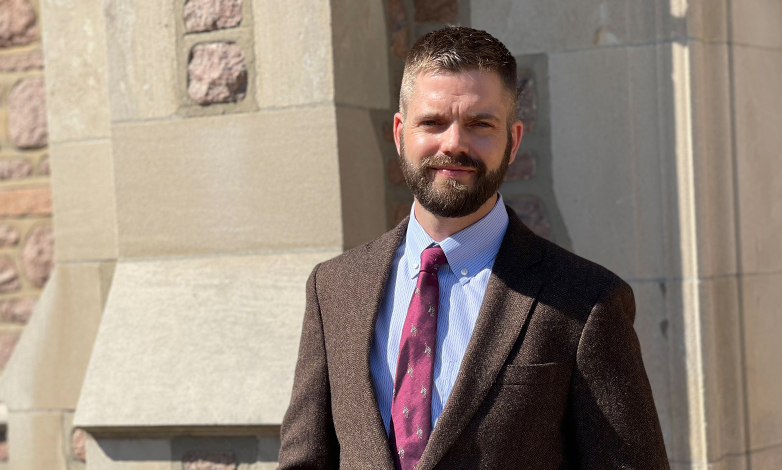Jeremy Goldbach, professor at the Brown School at Washington University in St. Louis, has received a five-year $3.2 million grant from the National Institutes of Health (NIH) for a project titled "Efficacy of a Multilevel School Intervention for LGBTQ Youth."
It will be the first NIH-funded intervention study to address making schools safer for LGBTQ+ youth through policy change and universal education, using a randomized controlled trial at 24 schools.
The study's goal is to test the efficacy of a theoretically informed, school-based intervention for sexual- and gender-minority adolescents. The intervention, called Proud & Empowered (P&E), was started by Goldbach in 2010 to help such adolescents cope with discrimination and stigma.
Twelve schools in the study will use the intervention and 12 will not.

"Studies consistently show this group experiences higher rates of depression, anxiety, self-harm and post-traumatic stress disorder, as well as discrimination, violence and victimization - all of which places them at higher risk of mental health concerns," Goldbach said. "Yet, at the time, no programs existed to support teachers, administrators and social workers to support these youth in an evidence-based way."
"This intervention is quite literally the culmination of thousands of kids' input," Goldbach said. "Looking back at all the youth who gave us their time, let us interview them, took our surveys and helped us learn, it is humbling. We hope their input makes P&E relevant to the lives of young people today," he said.
The P&E program is available to schools at no cost upon request, and it consists of 10 sessions that run 30-45 minutes each. There are training modules to assist adolescents and supportive adults in administering the program.
Goldbach's work is primarily focused on measuring, understanding and intervening upon experiences of minority stress and discrimination among LGBTQ+ children and adolescents.
Goldbach's work in the area has been continuously funded since 2012 by the Substance Abuse and Mental Health Services Administration, the NIH's National Institute on Minority Health and Health Disparities; National Institute of Child Health and Human Development; and National Institute on Drug Abuse; as well as by the Department of Defense and various foundations.






